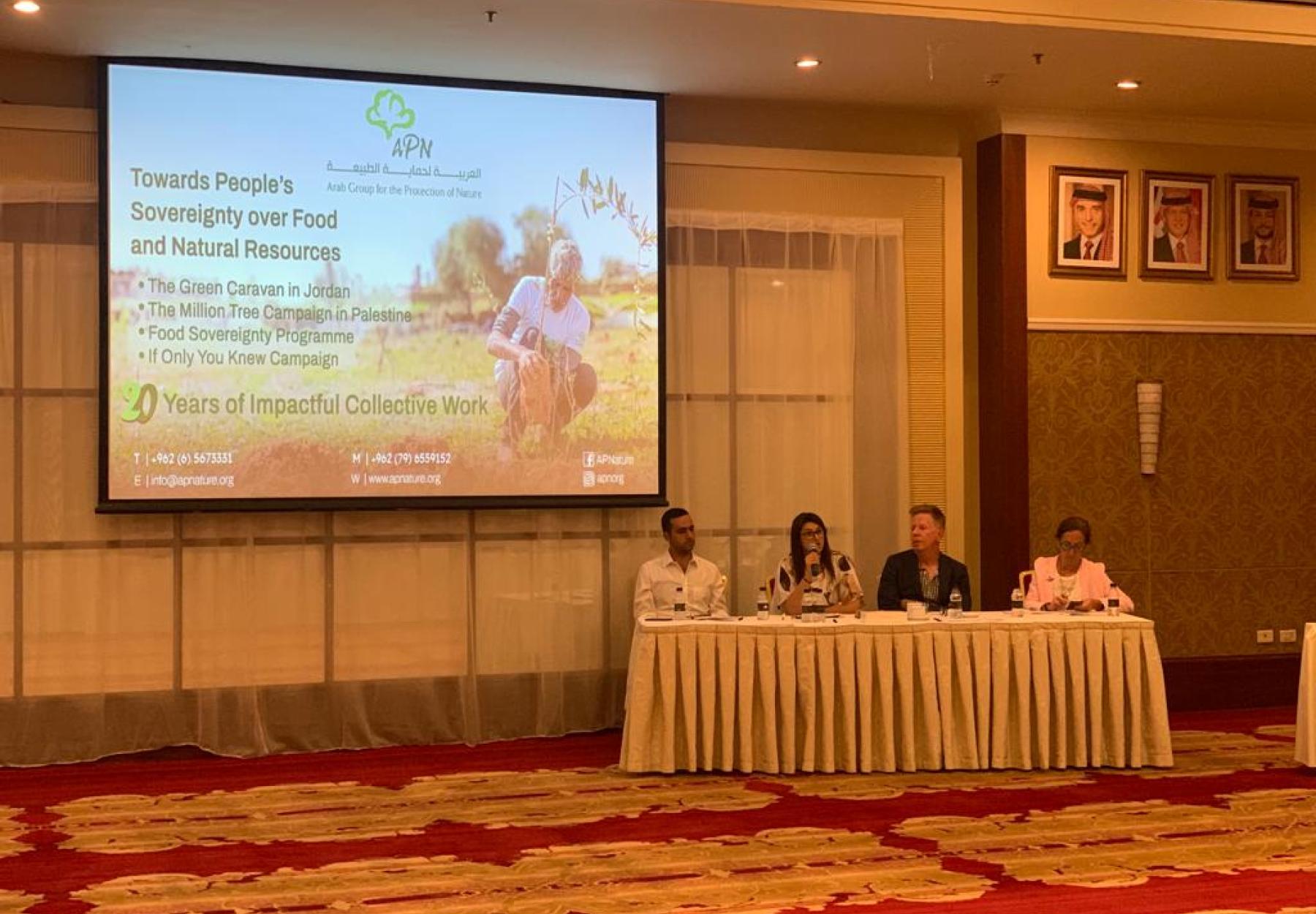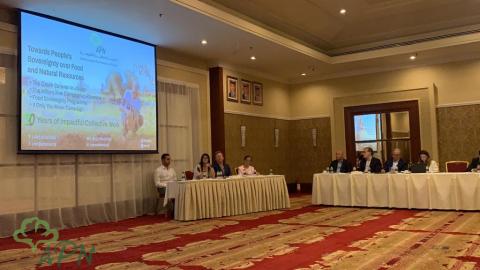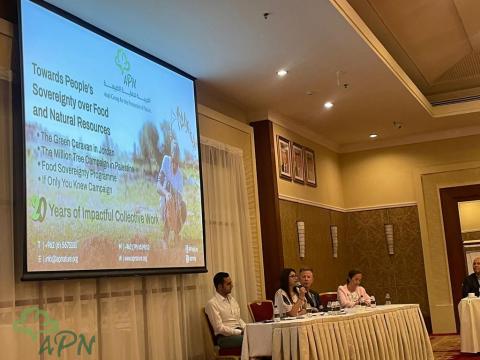
APN | Amman
4 October 2023
APN was invited to speak at the "MENA Climate Vulnerability Conference", organised by the Carnegie Endowment for International Peace – Middle East Program. The conference took place on 3 – 4 October 2023, in Amman, Jordan.
In the presentation, APN Advocacy and Research Officer, Lisa Shahin, highlighted the unequal role in climate change, pointing out that countries with the least contribution, often those from the Global South, are most vulnerable and endure a disproportionate burden of climate change impacts. Furthermore, Shahin underscored the current reality of the agricultural sector in the region، and more specifically in Jordan and Palestine, pointing out that even though the Arab region has an estimated 200 million hectares of arable land, only one-third of it is currently cultivated. Rather than increasing cultivation, the region imports over 50% of its caloric needs. This trend has resulted in elevated levels of food insecurity and hunger throughout the region.
As climate change intensifies، the agricultural sector will remain susceptible to climatic hazards. Nevertheless, Shahin pointed out that when combined with climate change risks, there are underlying factors that worsen the situation. The region grapples with unique political and social challenges, such as heavy dependence on grants, economic stagnation, and elevated rates of unemployment and poverty. These challenges result from protracted conflicts and occupation the region endures, which diminish the resilience of agricultural livelihoods and deplete the available resources, both natural and financial, for small-scale producers.
As for recommendations, Shahin put forth APN’s recommendations which include promoting Arab agricultural economic integration, bolstering food reserves, promoting the cultivation of fundamental food crops such as wheat, and establishing an Arab fund to support these crops. On a national level, Agricultural policies must facilitate small-scale producers' access to productive resources and provide them with incentives to encourage the adoption of sustainable agricultural practices that are suitable for the local context. As for agricultural projects, local community ownership must be emphasized, and inclusive collaboration established between various relevant entities.
It is worth mentioning that APN Chairperson of the Board, Razan Zuayter, and APN General Manager, Mariam Al Jaajaa, attended the conference and provided significant interventions during the conference’s sessions, highlighting the agricultural challenges in the region amidst conflicts, occupations, conditional funding, and absence of community ownership, calling for more accountability and transparency.

